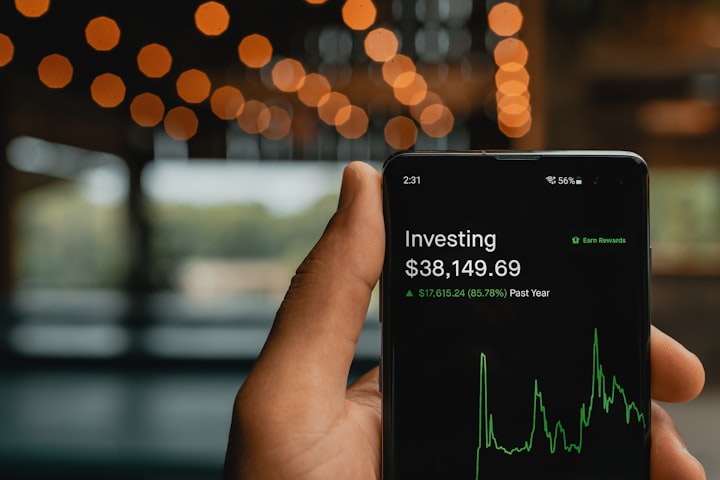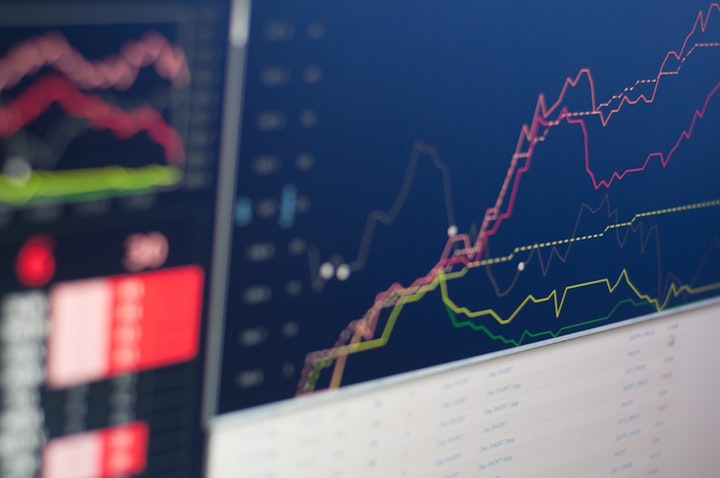Trading and Investing: Two Sides of the Same Coin
What are some key differences between trading and investing? Both share the same goal of making money but are fundamentally distinct.
Debates continue over the differences between trading and investing. In truth, no method is better than another because of the many available traded markets.
Also, each approach has unique advantages and disadvantages from instrument to instrument. Ultimately, trading and investing are two sides of the same coin: profit. Yet, the journeys towards this destination are intriguingly distinct.
Differences between trading and investing
Trading is about speculating and capitalizing on short-term movements (in minutes, days, weeks, or months). Investing is a slower buy-and-hold approach where someone buys an asset for several years or even longer.
It's important to note some financial instruments are better suited towards trading than investing or vice versa. For instance, although so-called buy-and-hold investors exist, the technical structure of currencies makes them a preferable trading option.
The forex markets tend to move in ranges and rarely in one direction for months or years. If we couple this with leverage, traders can realize a bigger profit with less money down.
Lastly, buying and holding the real currencies would cost much more upfront. Plus, the return would be much less percentage-wise due to having no leverage and transaction costs. In contrast, some instruments like crypto are better candidates for trading and investing.
Crypto is considered more valuable and deflationary than fiat currencies in the current economic landscape. Secondly, the potential for many coins has yet to be fully realized, meaning a lot more upside is possible. Also, digital currencies are more volatile and can move in one direction for extended periods.
These are key things when comparing trading and investing; the instrument makes a difference. Let's look at the other contrasts.
Time involvement
Traders must conduct frequent execution in their chosen markets and commit at least a few hours to analyze and monitor charts. Also, this camp will rely heavily on technical analysis and less on fundamentals.
In contrast, a die-hard investor may only perform a handful of transactions in a year and not need to observe their positions often. They are more concerned with critical fundamentals, which tend to remain unchanged compared to the ever-changing technical elements. However, ignoring these factors can cause losses that a typical trader would consider in the interim.
Traders seek to get in and out of a plethora of markets by realizing the highest possible profit. With investing, most analysts agree this endeavor is for building wealth for the long haul. Even if someone's investment has matured into some decent profit, they are unlikely to liquidate their entire holdings. At the very least, investors could sell off a small portion of an investment with some gains already, but they will often keep holding.
When traders experience the same scenario, their philosophy will incline them to sell quickly.
Capital requirements
One of the main attractions for trading most markets nowadays is leverage. Let's consider the differences between a gold CFD and owning the physical gold outright.
Most brokers can offer 1:500 leverage (or sometimes higher) in the former. On the other hand, an investor looking to purchase real metal will need to put down a lot more money.
If the price of gold rose by 1%, traders would have the advantage of deep liquidity, allowing for a quick realization of profits. Investors in this market face a bigger challenge. If they intended to sell, it would be more difficult, take longer, and incur additional costs.
The issue of leverage, as expected, is two-fold, as the downside can be magnified. Because traders don't hold to hold their positions for long, their threshold for losses is also shorter. In simple terms, traders will tend to close out losing trades sooner.
In contrast, an investor could hold their gold even if it lost substantially in value. Whether it took months or years to recover, they still have the potential to profit. Most traders don't have this luxury due to their inherent vision.
These discrepancies in capital allocation and loss threshold remain in all securities, further separating the behaviors between the two groups.
Can you trade and invest at the same time?
Fortunately, it's possible to do both at the same time and successfully with the extensive market selection at the moment. For example, a forex trader could use a swing trading strategy and form a long-term portfolio of cryptocurrency holdings.
Their time involvement in this scenario would remain relatively the same. The main challenge is recognizing the mindset required for both practices will vary.
Curtain thoughts
Wikipedia defines investing as 'to allocate money with the hopes of a positive return in the future.' Of course, this is a loose definition, and people's descriptions of 'future' differ. This is one of the fundamental differences between true trading and investing.
Before venturing into a new market, one should consider all the pros and cons of that instrument. Based on their circumstances, skills, experience, and net worth, they will observe and determine whether it's more suitable to trade or invest.
About the Creator
Langa Ntuli
- fascinated by the financial markets & TradingView charts. Freelance writer @upwork (www.upwork.com/freelancers/langan)
Medium account: medium.com/@lihle_ntuli
Also a humble music nerd, football fan, knowledge hoarder, peace/love extremist.







Comments
There are no comments for this story
Be the first to respond and start the conversation.